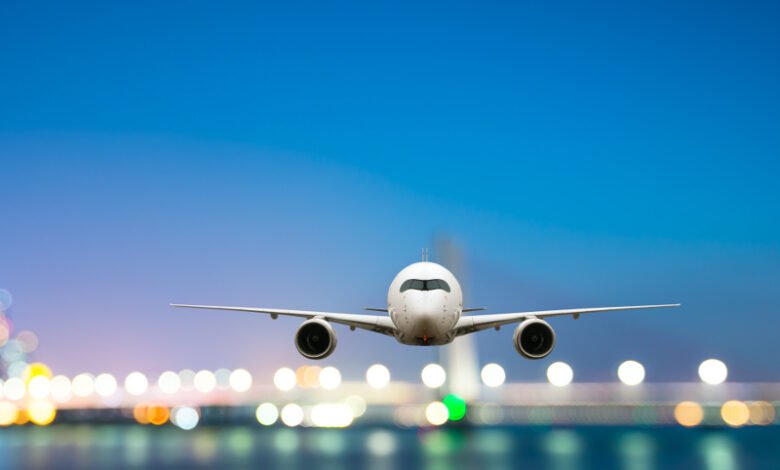United Airlines Charleston Mechanical Issue: Everything You Need to Know

In the world of air travel, mechanical issues are something that most passengers don’t want to hear about, but unfortunately, they do happen from time to time. A recent event that caused some concern was a mechanical issue that occurred on a United Airlines flight in Charleston. If you’re wondering what exactly happened, how it affects passengers, and what you should know about mechanical issues in general, you’ve come to the right place. In this article, we’ll dive deep into this topic, providing you with all the necessary details.
What Happened with United Airlines in Charleston?
On a seemingly ordinary day, a United Airlines flight experienced a mechanical issue while departing from Charleston. The issue led to delays and caused passengers to experience significant frustration. United Airlines, like many other airlines, has to handle such situations professionally to ensure passenger safety and comfort. But how exactly did this situation unfold, and what does it mean for future flights?
The Flight’s Delay: A Closer Look
When mechanical issues occur, delays are almost always a result. In this particular case, the mechanical issue forced the plane to return to the gate for further inspection. Although United Airlines worked swiftly to resolve the problem, passengers faced considerable inconvenience. The situation was further complicated by the fact that many passengers had tight connections to make, which added to the overall frustration.
What Causes Mechanical Issues in Airplanes?
Mechanical problems in airplanes are rare but can occur due to various reasons. They can range from minor issues, like a malfunctioning air conditioning system, to more serious concerns, like engine failures. In the case of the United Airlines flight in Charleston, the exact nature of the mechanical issue has not been made public. However, mechanical problems in aviation often occur due to:
- Regular wear and tear: Aircraft are complex machines that are constantly under pressure. Over time, parts can wear out and require maintenance.
- Environmental factors: Weather conditions or foreign objects can sometimes interfere with an aircraft’s systems.
- Human error: While less common, mistakes during maintenance or during the pre-flight inspection process can sometimes lead to mechanical failures.
Why Mechanical Issues Are Taken Seriously
Aviation regulations are strict because safety is the number one priority. Mechanical issues, no matter how small they may seem, must be addressed immediately. An issue that might seem insignificant on the ground could become a major safety risk at 30,000 feet. That’s why delays due to mechanical problems are generally seen as a necessary precaution.
United Airlines’ Response: How Did They Handle the Situation?
United Airlines, like all airlines, has strict protocols in place for dealing with mechanical issues. The airline’s primary concern during such events is to ensure the safety of passengers. Here’s a breakdown of how they typically respond to mechanical issues:
Immediate Action
Once a mechanical issue is identified, the first step is to ensure the safety of everyone on board. This involves moving the aircraft back to the gate and calling in maintenance professionals to assess the situation.
Communication with Passengers
One of the most important aspects of handling a mechanical issue is keeping passengers informed. United Airlines communicated the situation to passengers, explaining the cause of the delay and offering updates as they worked to resolve the problem.
Providing Alternatives
In cases where delays are expected to be lengthy, airlines may offer alternatives to help passengers continue their journey. This could include rebooking flights, providing hotel accommodations, or even offering meal vouchers, depending on the severity of the delay.
How Mechanical Problems Impact Passengers
Mechanical issues not only affect flight schedules but also have a direct impact on passengers. These issues can lead to:
- Delays: As we saw in this case, mechanical issues often lead to delayed flights, which can disrupt travel plans.
- Missed Connections: Passengers with connecting flights may miss their scheduled connections due to delays, leading to further inconvenience.
- Increased Stress: Travel delays, especially when they are unexpected, can cause a great deal of stress and frustration, particularly if passengers have important events or meetings they need to attend.
The Importance of Passenger Safety
Despite the inconvenience that mechanical issues cause, passenger safety remains the top priority. Delays and cancellations are always better than risking an unsafe flight. While no one likes delays, it’s important to remember that safety should never be compromised.
Preventing Mechanical Issues: What Airlines Do to Stay Safe
Airlines and aircraft manufacturers invest heavily in preventative measures to minimize the chances of mechanical failures. These efforts include:
Regular Maintenance Checks
Airplanes undergo routine maintenance checks after a set number of flight hours or landings. These checks ensure that all components are functioning properly and that any potential issues are addressed before they become a major problem.
Advanced Technology
Modern airplanes are equipped with sophisticated technology that allows engineers and pilots to monitor the health of the aircraft in real-time. This includes systems that track everything from engine performance to hydraulic pressure, helping to spot potential issues before they become critical.
Pilot and Crew Training
Airline staff, including pilots and maintenance crews, undergo continuous training to handle any issues that may arise during a flight. This ensures that they can act swiftly and effectively if mechanical problems do occur.
How to Protect Yourself from Travel Disruptions
While you can’t control mechanical issues, there are ways to minimize the impact of travel disruptions:
Plan for Flexibility
When booking flights, try to leave enough time between connections to account for unexpected delays. This can help ensure that you don’t miss important connections if something goes wrong.
Stay Informed
Check your flight status regularly and keep an eye out for updates from the airline. Most airlines offer mobile apps or email notifications that can keep you informed in real time.
Have a Contingency Plan
If you’re flying for an important event, it’s always a good idea to have a backup plan. Consider booking a flight a day earlier or choosing an airline that offers flexible rebooking options.
How Often Do Mechanical Problems Occur in Aviation?
While mechanical issues are serious, they are rare in modern aviation. The aviation industry is one of the most regulated and safest industries in the world. According to the Federal Aviation Administration (FAA), the likelihood of a mechanical issue affecting a flight is minimal. In fact, mechanical failures account for only a small percentage of all flight delays.
Comparing Mechanical Issues to Other Delays
In the grand scheme of things, mechanical problems are less common than other reasons for flight delays, such as weather or air traffic control issues. However, when they do occur, they often receive a lot of attention because of their potential impact on flight safety.
What Should Passengers Do in Case of Mechanical Issues?
If you find yourself on a flight delayed due to mechanical issues, here’s what you can do:
- Stay calm: Understand that the airline is doing everything it can to resolve the situation.
- Ask for updates: Keep in touch with the airline staff for any new information.
- Know your rights: Familiarize yourself with the airline’s policies regarding compensation for delays or cancellations.
Conclusion: What You Should Take Away
Mechanical issues can disrupt even the most well-planned trips, as we saw with the United Airlines incident in Charleston. However, it’s important to remember that safety is the number one priority in aviation. Airlines like United work hard to resolve such issues quickly, and they are committed to keeping passengers safe. By staying informed and being flexible with your travel plans, you can minimize the impact of these disruptions on your journey.
FAQs
1. What happens when a flight is delayed due to mechanical issues?
A delayed flight due to mechanical issues usually means the plane needs to be inspected and repaired. The airline will work to resolve the issue as quickly as possible and may provide updates to passengers.
2. How often do mechanical issues cause flight delays?
Mechanical issues are rare, and flight delays due to them are uncommon. Most delays are caused by factors like weather or air traffic control.
3. Can passengers claim compensation for mechanical delays?
Yes, passengers may be entitled to compensation for significant delays or cancellations, depending on the airline’s policies and the duration of the delay.
4. How do airlines prevent mechanical issues?
Airlines conduct regular maintenance checks, invest in advanced technology, and train their staff to ensure the safety of their aircraft and minimize mechanical issues.
5. What should I do if my flight is delayed due to a mechanical issue?
Stay calm, stay informed, and ask the airline staff for updates. You can also inquire about compensation options if the delay is significant.



